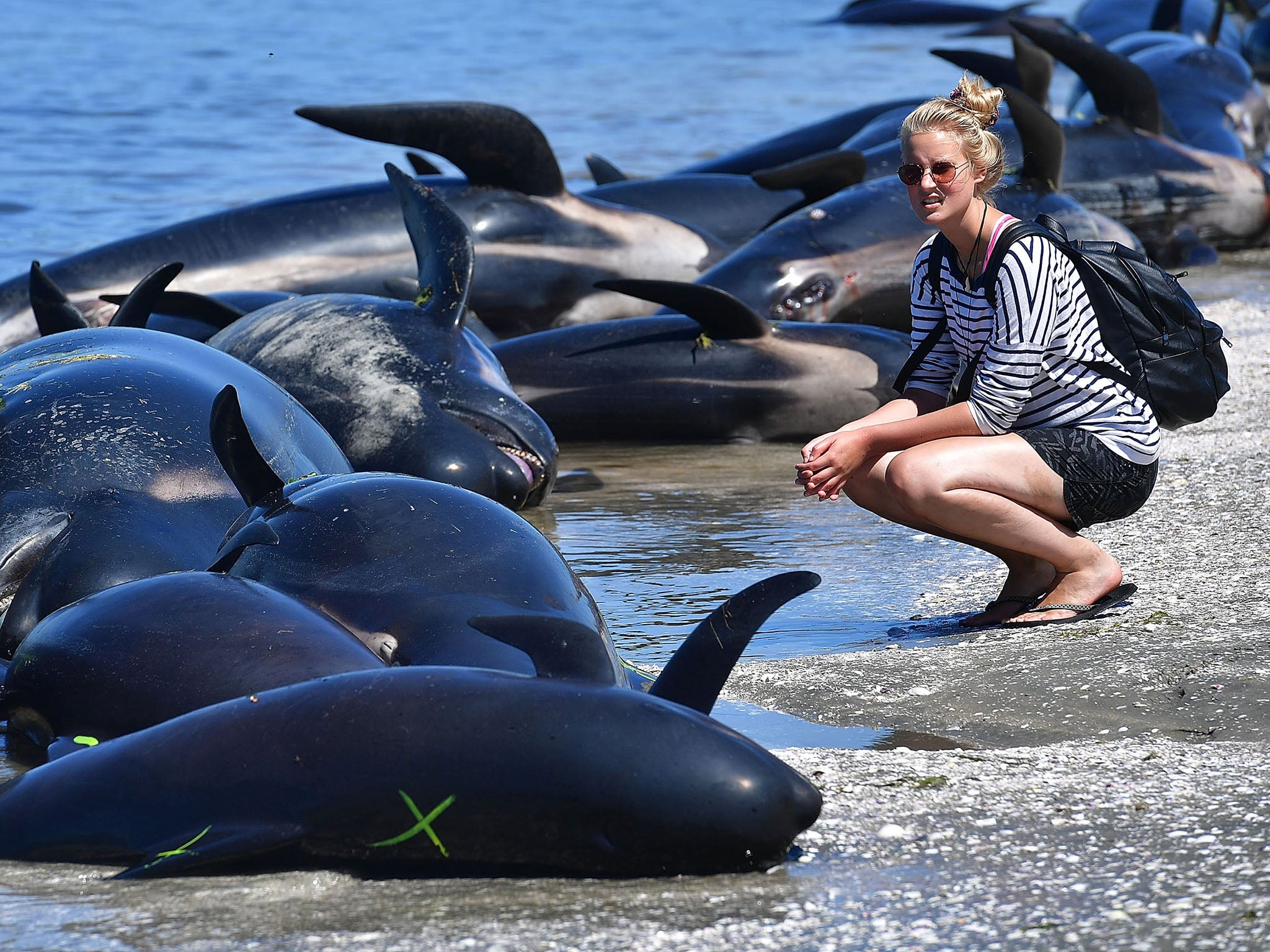Hundreds of whale carcasses popped 'like balloons' to stop them exploding on New Zealand beach
Around 400 die after one of the biggest strandings in country's history

Your support helps us to tell the story
From reproductive rights to climate change to Big Tech, The Independent is on the ground when the story is developing. Whether it's investigating the financials of Elon Musk's pro-Trump PAC or producing our latest documentary, 'The A Word', which shines a light on the American women fighting for reproductive rights, we know how important it is to parse out the facts from the messaging.
At such a critical moment in US history, we need reporters on the ground. Your donation allows us to keep sending journalists to speak to both sides of the story.
The Independent is trusted by Americans across the entire political spectrum. And unlike many other quality news outlets, we choose not to lock Americans out of our reporting and analysis with paywalls. We believe quality journalism should be available to everyone, paid for by those who can afford it.
Your support makes all the difference.Conservation workers in New Zealand have been “popping” pilot whales “like balloons” to stop their carcasses exploding.
Around 400 whales died after one of the largest ever strandings in the country’s history.
The public has been warned about the dangers posed by “whales exploding” on Golden Beach, on the South Island, and the Department of Conservation (DOC) has cordoned off the area.
Workers spent Monday cutting holes in the animals, using knives and two metre needles, to release internal gases. It was “like popping balloons,” a DOC spokesperson told local radio.
It would take several months for the bodies to decompose and turn into skeletons.
The surviving whales were last seen swimming six kilometres (four miles) offshore on Sunday evening, according to DOC.
Last Thursday, a pod of about 400 whales became stranded, with a second pod of more than 200 whales stranded on Saturday.
The precise cause is not known.
Beached whales are not uncommon on Golden Bay. Its shallow muddy waters confuse the whale's sonar, leaving it vulnerable to stranding by an ebb tide, according to marine environmental organisation Project Jonah.
Pilot whales are not listed as endangered, but little is known about their population in New Zealand waters.
Join our commenting forum
Join thought-provoking conversations, follow other Independent readers and see their replies
Comments